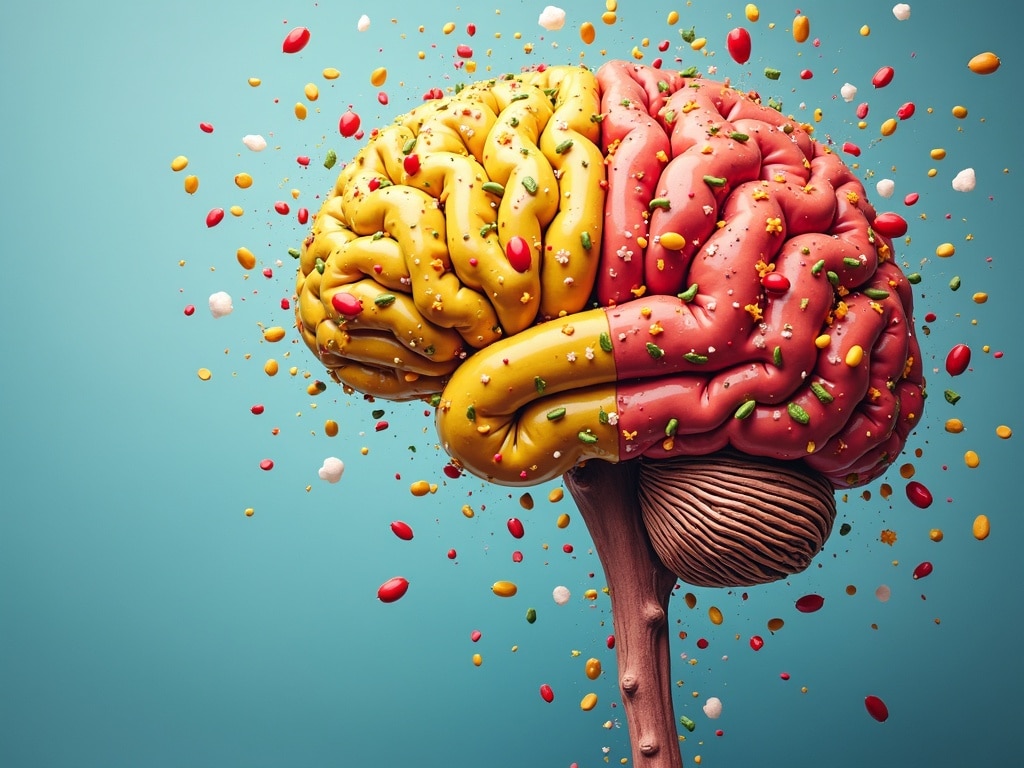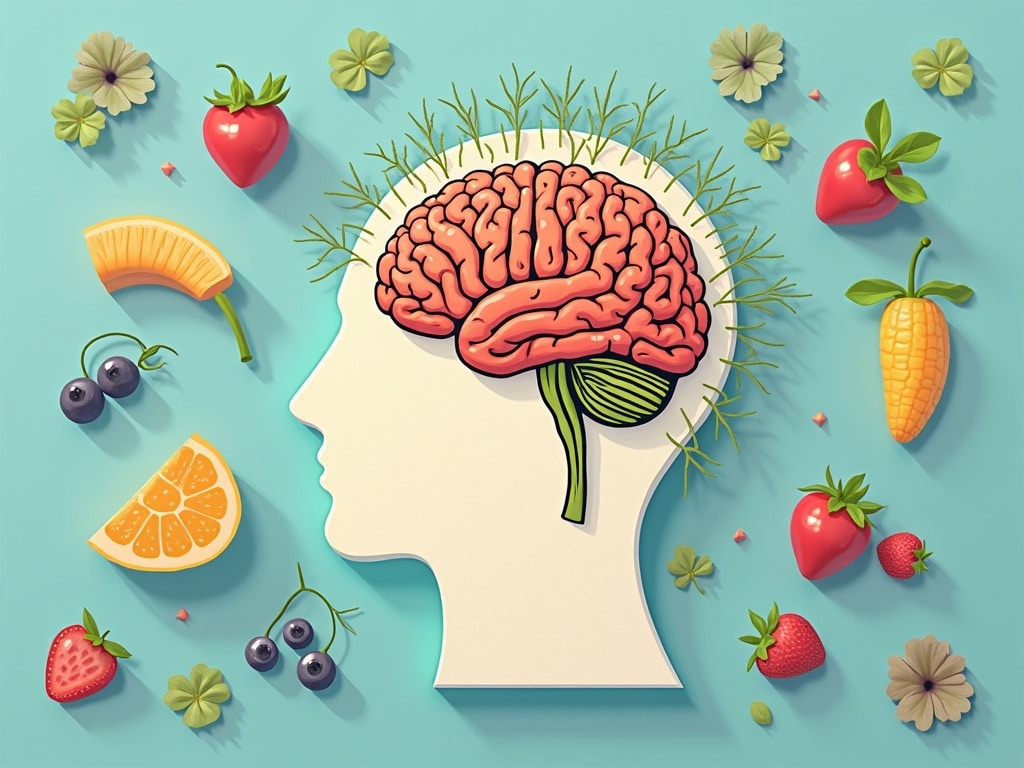Lowering Alzheimer's Risk With Diet: A Guide to Brain-Boosting Foods
Is it possible to eat your way to a sharper mind, a more resilient memory, and a decreased risk of Alzheimer's disease? The answer, increasingly, appears to be yes. While genetics certainly play a role, a growing body of research highlights the profound impact of diet on cognitive health. This article delves into the specific foods and eating patterns that may help lower your risk of Alzheimer's, offering practical strategies for incorporating them into your daily life.
The Alzheimer's Epidemic: Why Prevention Matters
Alzheimer's disease is a devastating neurodegenerative disorder characterized by progressive memory loss, cognitive decline, and ultimately, a loss of independence. Millions worldwide are affected, and the numbers are projected to surge in the coming decades. Currently, there is no cure for Alzheimer's, making prevention strategies all the more critical. While researchers continue to explore potential treatments, lifestyle interventions, particularly diet, offer a promising avenue for reducing risk and promoting brain health.
The Gut-Brain Connection: Where Prevention Begins
The link between your gut and your brain, often called the gut-brain axis, is a critical player in neurological health. The trillions of bacteria residing in your gut influence brain function through various pathways, including the production of neurotransmitters and the regulation of inflammation. An unhealthy gut microbiome, characterized by an imbalance of beneficial and harmful bacteria, can contribute to systemic inflammation and increase the risk of neurodegenerative diseases like Alzheimer's.
How Gut Health Impacts Alzheimer's Risk
- Inflammation: An imbalanced gut can trigger chronic inflammation throughout the body, including the brain, which is a hallmark of Alzheimer's disease.
- Neurotransmitter Production: The gut produces a significant portion of the body's neurotransmitters, such as serotonin and dopamine, which are crucial for mood, memory, and cognitive function. Disruptions in gut health can affect neurotransmitter production and impair cognitive processes.
- Amyloid Plaque Formation: Some studies suggest that gut bacteria may influence the formation of amyloid plaques, a characteristic feature of Alzheimer's pathology, in the brain.
The Power of the MIND Diet: Eating for Cognitive Longevity
The MIND diet (Mediterranean-DASH Intervention for Neurodegenerative Delay) is specifically designed to promote brain health and protect against cognitive decline. It combines aspects of the Mediterranean diet and the DASH (Dietary Approaches to Stop Hypertension) diet, both of which have been shown to have numerous health benefits.
Key Components of the MIND Diet
- Green Leafy Vegetables: Aim for at least six servings per week. These are packed with vitamins, minerals, and antioxidants that protect brain cells from damage. Think spinach, kale, collard greens, and lettuce.
- Other Vegetables: Incorporate at least one serving of other vegetables each day. Focus on colorful options like bell peppers, carrots, and broccoli.
- Nuts: Snack on a handful of nuts most days of the week. Nuts are a good source of healthy fats, vitamin E, and magnesium, all of which benefit brain health.
- Berries: Eat berries at least twice a week. Blueberries and strawberries are particularly rich in antioxidants called anthocyanins, which have been linked to improved cognitive function.
- Beans: Include beans in your diet at least three times a week. Beans are a great source of fiber and protein, which help regulate blood sugar and support overall health.
- Whole Grains: Choose whole grains over refined grains. Opt for whole-wheat bread, brown rice, quinoa, and oats.
- Fish: Eat fish at least once a week. Fatty fish like salmon, tuna, and mackerel are rich in omega-3 fatty acids, which are essential for brain health.
- Poultry: Limit your intake of red meat and focus on poultry like chicken or turkey.
- Olive Oil: Use olive oil as your primary cooking oil. Olive oil is a good source of healthy fats and antioxidants.
- Wine: Drink a glass of wine per day (optional). Red wine contains resveratrol, an antioxidant that may have protective effects on the brain. However, moderation is key, and excessive alcohol consumption can be harmful.
Foods to Limit or Avoid for Optimal Brain Health
Just as certain foods can protect your brain, others can increase your risk of cognitive decline. Limiting or avoiding the following foods is crucial for lowering your Alzheimer's risk:
- Red Meat: High intake of red meat has been linked to an increased risk of Alzheimer's disease.
- Butter and Margarine: These are high in saturated and trans fats, which can contribute to inflammation and impair brain function.
- Cheese: While cheese can be part of a healthy diet in moderation, excessive consumption may be linked to increased Alzheimer's risk.
- Pastries and Sweets: These are high in sugar and refined carbohydrates, which can contribute to inflammation and insulin resistance, both of which are detrimental to brain health.
- Fried Food: Fried foods are often high in unhealthy fats and can contribute to inflammation.

Specific Nutrients and Their Role in Alzheimer's Prevention
Beyond specific foods, certain nutrients play a particularly important role in protecting against Alzheimer's disease.
Omega-3 Fatty Acids
Omega-3 fatty acids, particularly EPA and DHA, are essential for brain health. They are found in fatty fish, flaxseeds, chia seeds, and walnuts. Omega-3s help reduce inflammation, support brain cell structure, and improve cognitive function.
Antioxidants
Antioxidants protect brain cells from damage caused by free radicals. They are abundant in colorful fruits and vegetables, nuts, and seeds. Key antioxidants for brain health include vitamin C, vitamin E, and flavonoids.
B Vitamins
B vitamins, especially B6, B12, and folate, are crucial for brain function. They play a role in neurotransmitter production and help protect against homocysteine, an amino acid that can damage brain cells.
Vitamin D
Vitamin D deficiency has been linked to an increased risk of Alzheimer's disease. Getting enough vitamin D through sunlight, diet, or supplements is important for overall health and brain function.
Building Your Brain-Boosting Meal Plan: Practical Tips
Incorporating these dietary recommendations into your daily life doesn't have to be overwhelming. Here are some practical tips for building a brain-boosting meal plan:
- Start Small: Make gradual changes to your diet rather than trying to overhaul everything at once.
- Plan Your Meals: Planning your meals in advance can help you make healthier choices and avoid impulsive eating.
- Cook at Home: Cooking at home allows you to control the ingredients and preparation methods, ensuring that you're eating healthy, whole foods.
- Experiment with New Recipes: Find healthy recipes that you enjoy and try them out. There are countless resources online and in cookbooks.
- Read Food Labels: Pay attention to food labels and choose products that are low in sugar, saturated fat, and trans fat.
- Don't Be Afraid to Indulge (Occasionally): It's okay to enjoy your favorite treats in moderation. The key is to focus on eating healthy most of the time.
Beyond Diet: A Holistic Approach to Alzheimer's Prevention
While diet is a critical component of Alzheimer's prevention, it's important to remember that it's just one piece of the puzzle. A holistic approach that includes regular exercise, mental stimulation, social engagement, and stress management is essential for optimizing brain health.
The Importance of Exercise
Regular physical activity has been shown to improve cognitive function and reduce the risk of Alzheimer's disease. Aim for at least 30 minutes of moderate-intensity exercise most days of the week.
Mental Stimulation and Cognitive Training
Engaging in mentally stimulating activities, such as reading, puzzles, and learning new skills, can help keep your brain sharp and resilient.
Social Engagement
Maintaining strong social connections is important for cognitive health. Spending time with friends and family, participating in social activities, and volunteering can help reduce stress and improve mood.
Stress Management Techniques
Chronic stress can damage brain cells and increase the risk of Alzheimer's disease. Practicing stress management techniques, such as meditation, yoga, and deep breathing exercises, can help protect your brain.
The Future of Dietary Research in Alzheimer's Prevention
Research on the link between diet and Alzheimer's disease is ongoing, and new insights are constantly emerging. Future studies will likely focus on:
- Identifying specific nutrients and food combinations that are most effective for preventing Alzheimer's.
- Investigating the role of the gut microbiome in Alzheimer's pathogenesis and exploring strategies for modulating the gut microbiome to improve brain health.
- Developing personalized dietary recommendations based on individual genetic profiles and risk factors.
Empowering Yourself Through Dietary Choices
While Alzheimer's disease is a complex and challenging condition, there is reason for hope. By making informed dietary choices and embracing a healthy lifestyle, you can take proactive steps to lower your risk and protect your cognitive health. The power to nourish your brain and invest in a brighter future is within your reach. Start today, one delicious and brain-boosting meal at a time.

